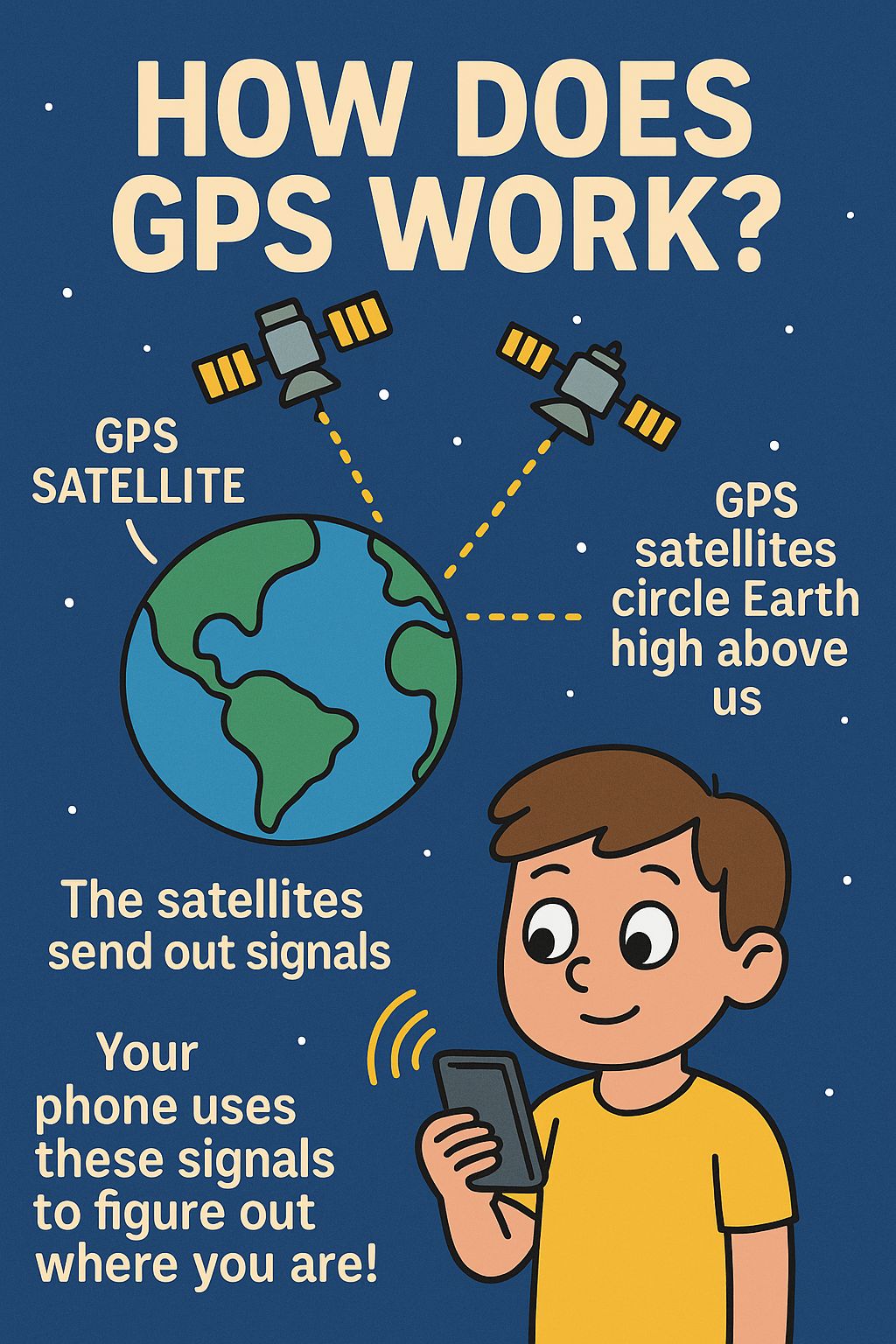Your career will thank you.
Over 4 million professionals start their day with Morning Brew—because business news doesn’t have to be boring.
Each daily email breaks down the biggest stories in business, tech, and finance with clarity, wit, and relevance—so you're not just informed, you're actually interested.
Whether you’re leading meetings or just trying to keep up, Morning Brew helps you talk the talk without digging through social media or jargon-packed articles. And odds are, it’s already sitting in your coworker’s inbox—so you’ll have plenty to chat about.
It’s 100% free and takes less than 15 seconds to sign up, so try it today and see how Morning Brew is transforming business media for the better.
Imagine you're in the middle of nowhere — no signs, no roads, no help.
You pull out your phone, tap your map… and BOOM:
It tells you exactly where you are.
But how?
How does your phone know where you are, without asking you?
The answer is GPS — short for Global Positioning System.
And behind that simple blue dot on your screen is a high-tech ballet between satellites, clocks, and math happening at nearly the speed of light.
Let’s break it down 👇
🛰️ First: What Is GPS?

GPS is a network of at least 24 satellites orbiting the Earth, run by the U.S. government.
Each satellite:
Circles Earth twice a day
Sends signals with precise time and location data
Is always “visible” to your GPS device from space
When your phone or car “uses GPS,” what it’s really doing is listening to those signals.
⏱️ It’s All About Timing
Here’s the genius part:
Each GPS satellite constantly broadcasts the exact time it sent a signal.
Your device receives that signal — and because it knows how fast light travels, it can calculate how far away the satellite is based on the time delay.
One satellite gives you a circle of possible locations.
Two satellites narrow it down to where those circles intersect.
Three or more? Boom: Your exact location.
(This is called trilateration, and it’s what makes GPS so accurate.)
📍 But Wait — There’s More!
To work properly, GPS also depends on:
Atomic clocks (accurate to a billionth of a second)
Relativity (yes, Einstein’s theories!)
Constant updates from ground stations around the globe
And to stay accurate, GPS satellites even correct for the fact that time moves differently in space than it does on Earth. Wild, right?
🗺️ What GPS Can Do
Today, GPS powers way more than maps. It’s used in:
Ride-hailing apps 🚗
Airplane navigation ✈️
Search and rescue operations 🚨
Earthquake monitoring 🌍
Farming tractors 🚜
Even… dog collars 🐶
It’s like an invisible, silent system running the world.
🧠 What We Can Learn
Big ideas (like tracking your location) often come from tiny clues (like timing)
Space technology is woven into your daily life
Sometimes, the most powerful tools are the ones we never notice
So next time you get directions to your favorite taco place in seconds, remember:
It took space travel, Einstein, and atomic clocks to make that happen.

